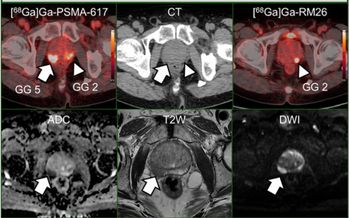
Now or later? fMRI shows why
You're offered tickets to the Super Bowl, but you have an anniversary getaway planned for that week. Whatever your choice, two separate brain areas will battle it out.
You're offered tickets to the Super Bowl, but you have an anniversary getaway planned for that week. Whatever your choice, two separate brain areas will battle it out.
Sticking with the vacation-essentially, choosing long-term happiness over immediate gratification-will activate the brain's frontoparietal region, associated with cognitive thinking. Choosing the Super Bowl tickets will trigger the limbic system, which is associated with emotion.
Samuel McClure, Ph.D., and colleagues at Princeton University asked 14 volunteers to choose a gift certificate ranging in value from $5 to $40, with the caveat that the larger amounts would be available only weeks later (Science 2004;306[5695]:503-507).
Functional MRI showed that all decisions activated the lateral prefrontal cortex and posterior parietal cortex, both associated with abstract thinking. Longer term options, however, fueled the frontoparietal area, while short-term choices triggered the limbic system.
Emotions won out over abstract thinking when the reward was closer at hand, McClure said.
Newsletter
Stay at the forefront of radiology with the Diagnostic Imaging newsletter, delivering the latest news, clinical insights, and imaging advancements for today’s radiologists.













